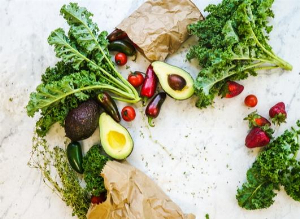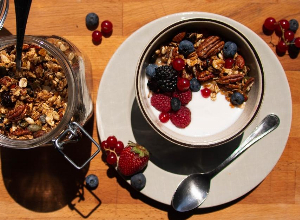Gluten-free diet should not be eaten by people who are not coeliac, say scientists
Published 18 Oct 2017

Gluten-free diets should not be encouraged among people who do not have coeliac disease, scientists have said.
Gluten is a protein found in wheat, rye and barley and gives food a chewy texture and elasticity during the baking process.
Around one per cent of Britons are genuinely gluten-intolerant, and face a string of debilitating symptoms including vomiting, nerve problems, anaemia, inflammation and an increased risk of coronary heart disease.
However some estimates put the proportion of adults adhering to gluten-free diets in the UK at more than 12 per cent, many believing that it is better for the heart.
Researchers at Harvard University looked at data from nearly 120,000 people over 26 years and found that going gluten-free did not cut the risk of heart disease.
And they warned that restricting dietary gluten may result in a low intake of whole grains, which are known to be beneficial for the heart.
“The popularity of a low gluten or gluten-free diet in the general population has markedly increased in recent years,” said Dr Andrew Chan, of Harvard Medical School and Massachusetts General Hospital in the BMJ.
“However these findings underscore the potential that people who severely restrict gluten intake may also significantly limit their intake of whole grains, which may actually be associated with adverse cardiovascular outcomes. The promotion of gluten-free diets among people without coeliac disease should not be encouraged.”
The UK “free from” market is growing rapidly and expected to be worth £550 million by 2019.
Market analysis Mintel claim that in 2015 12 per cent of new food products launched in the UK carried a gluten-free claim, up from 7 per cent in 2011.
Last year Catherine Collins, the chairman of the British Association of Dieticians, said the dramatic increase in people opting for free from diets was partly down to the rise of celebrity food bloggers such as Gwyneth Paltrow, and “clean eating” gurus such as Jasmine and Melissa Hemsley, as well as a new culture of posting photographs of food on social media.
However a recent study by Harvard also suggested that ingesting only small amounts of gluten, or avoiding it altogether, increases the danger of diabetes by as much as 13 per cent. The authors point out that the new research is only an observational study, so no firm conclusions can be drawn about cause and effect.
However they warn that “promotion of gluten-free diets for the purpose of coronary heart disease prevention among asymptomatic people without coeliac disease should not be recommended.”
___________________
Are you or have you been on a gluten-free diet? Who recommended it to you and why?
What is your feedback - can you say that it imroved your overall health or made you feel better?
Your experience will be much appreciated ![]()
The Telegraph
6 comments
You will also like

The Hypotoxic (Seignalet) diet: Is it effective for certain chronic illnesses?
23 Jul 2021 • 6 comments

 Facebook
Facebook Twitter
Twitter


